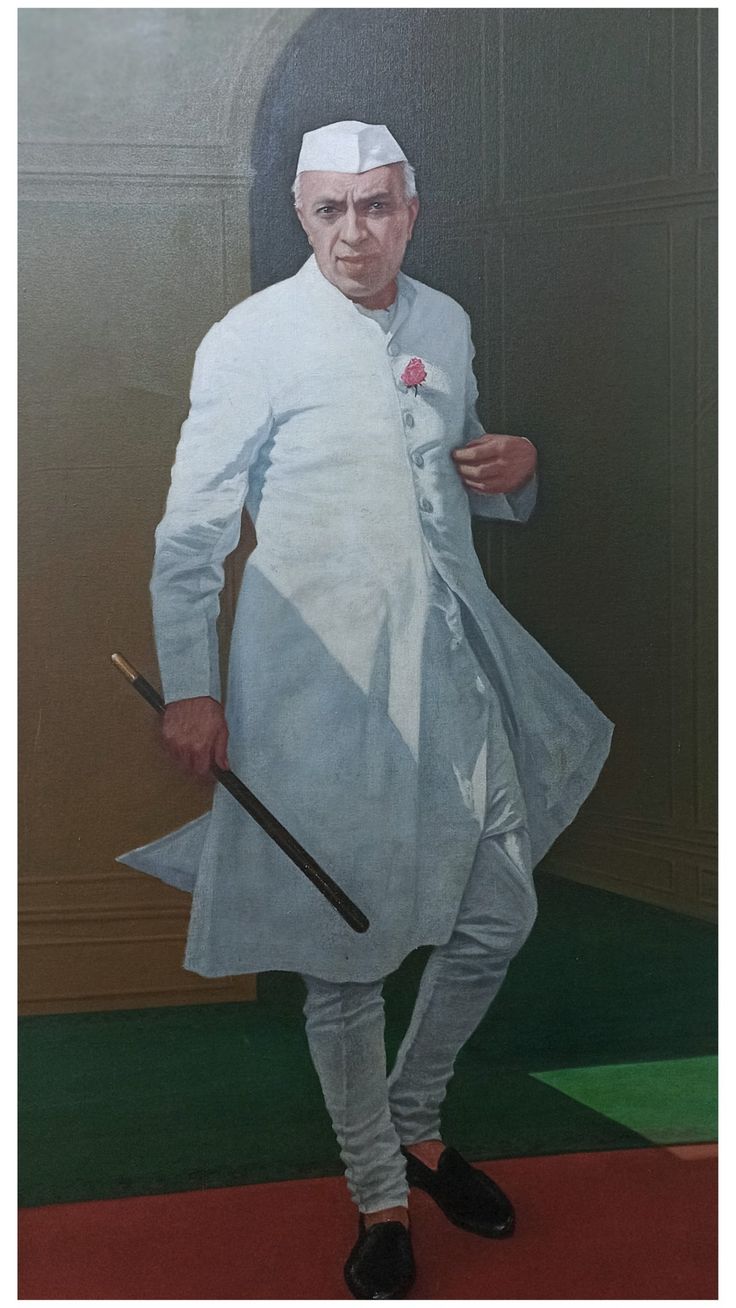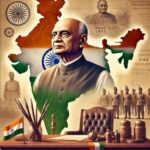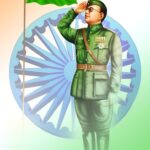Jawaharlal Nehru: Architect of Modern India and Champion of Democracy
Jawaharlal Nehru (1889–1964), India’s first Prime Minister, was a visionary leader, freedom fighter, and statesman who played a pivotal role in shaping the nation’s identity. Fondly called “Chacha Nehru,” especially by children, his contributions to India’s freedom struggle and post-independence development have left an indelible mark.
Early Life and Education; Jawaharlal Nehru
Born: November 14, 1889, in Allahabad (now Prayagraj), Uttar Pradesh.
Nehru was born into a wealthy and politically active family. His father, Motilal Nehru, was a prominent lawyer and nationalist leader.
- Education Abroad: Nehru studied at Harrow and Trinity College, Cambridge, and later pursued law at the Inner Temple, London.
- His exposure to Western ideas of democracy, socialism, and freedom deeply influenced his worldview.
Role in India’s Freedom Struggle; Jawaharlal Nehru
Nehru returned to India in 1912 and soon became involved in the fight against British colonial rule.
1. Joining the Indian National Congress
Under the mentorship of Mahatma Gandhi, Nehru became a prominent leader in the Congress Party. He was particularly inspired by Gandhi’s principles of nonviolence and civil disobedience.
2. Prominent Movements
- Non-Cooperation Movement (1920–1922): Nehru actively mobilized the masses to boycott British goods and institutions.
- Civil Disobedience Movement (1930): He played a significant role in protests, including the iconic Salt March.
- Quit India Movement (1942): Nehru was imprisoned multiple times for his role in this call for complete independence.
3. Vision for Independence
Nehru’s vision of an independent India went beyond mere political freedom. He envisioned a secular, democratic, and modern nation where science and education would play a central role.
Jawaharlal Nehru as India’s First Prime Minister
After India gained independence on August 15, 1947, Jawaharlal Nehru became the country’s first Prime Minister. He served in this role until his death in 1964.
1. Nation-Building Efforts
Nehru laid the foundation for India’s transformation into a modern, industrialized, and democratic nation:
- Economic Planning: He initiated the Five-Year Plans to promote industrialization, agriculture, and infrastructure development.
- Education and Research: Nehru was instrumental in establishing institutions like IITs, AIIMS, and ISRO, emphasizing science and technology.
- Non-Aligned Movement (NAM): Nehru advocated for neutrality during the Cold War, positioning India as a leader of the Non-Aligned Movement.
2. Constitutional Democracy
Nehru played a crucial role in upholding India’s democratic values:
- He championed secularism, ensuring that India remained a nation where all religions coexisted peacefully.
- Nehru worked to strengthen the parliamentary system and emphasized the importance of free speech and press.
Philosophy and Vision; Jawaharlal Nehru
Nehru’s leadership was guided by a blend of pragmatism and idealism.
- Secularism: He believed in separating religion from politics to foster national unity.
- Scientific Temper: Nehru emphasized rational thinking, scientific innovation, and education to build a progressive society.
- Socialism: Inspired by Marxist ideas, he aimed for a mixed economy where both private and public sectors could thrive.
- Global Peace: Nehru envisioned India as a peace-loving nation, advocating for disarmament and global cooperation.
Legacy and Impact; Jawaharlal Nehru
1. Architect of Modern India
Nehru’s policies laid the groundwork for India’s industrial and technological growth. He is often referred to as the Architect of Modern India.
2. Champion of Education
His focus on higher education and scientific research continues to shape India’s academic landscape.
3. Builder of Democratic Institutions
Nehru’s commitment to democratic values ensured the smooth functioning of India’s parliamentary system.
4. Global Leader
Through his leadership in the Non-Aligned Movement, Nehru established India’s independent voice on the global stage.
Observance and Tributes; Jawaharlal Nehru
Children’s Day (Bal Diwas):
November 14, Nehru’s birth anniversary, is celebrated as Children’s Day in India. Nehru’s affection for children earned him the nickname “Chacha Nehru.”
- Schools and institutions organize cultural events, speeches, and educational activities to honor his legacy.
Statues and Memorials:
- The Shanti Van in Delhi is the resting place of Nehru, where people pay homage annually.
- Numerous institutions, roads, and awards are named after him to commemorate his contributions.
Interesting Facts About Jawaharlal Nehru
- Writer and Thinker: Nehru was an accomplished author. His books, such as The Discovery of India and Glimpses of World History, reflect his deep understanding of history and culture.
- Imprisonments: Nehru spent nearly nine years in British jails during the freedom struggle.
- Love for Roses: Nehru often wore a red rose in his coat, symbolizing his love for beauty and life.
- Children’s Favorite: His connection with children was so strong that they lovingly called him Chacha Nehru.
- Global Statesman: Nehru was a key figure in promoting peace and neutrality during the Cold War era.
FAQs About Jawaharlal Nehru
1. Why is Jawaharlal Nehru called the “Architect of Modern India”?
Nehru’s policies on industrialization, education, and infrastructure development laid the foundation for India’s growth as a modern nation.
2. What was Nehru’s role in the Non-Aligned Movement?
Nehru co-founded the Non-Aligned Movement to keep newly independent nations neutral during the Cold War.
3. Why is Nehru associated with Children’s Day?
His deep affection for children led to his birthday being celebrated as Children’s Day in India.
Significance in Modern Society; Jawaharlal Nehru
Nehru’s ideals and contributions remain relevant today:
- Democratic Values: His emphasis on secularism and democracy serves as a guiding principle for contemporary governance.
- Educational Reforms: His vision for education continues to inspire policies focused on knowledge and innovation.
- Global Leadership: Nehru’s focus on peace and cooperation offers valuable lessons in diplomacy and international relations.
Wishing Jawaharlal Nehru Legacy Forward
Honoring Nehru means embracing his vision of a progressive, inclusive, and united India. His life reminds us of the importance of education, scientific temper, and democratic values.
Final Thoughts: Jawaharlal Nehru
Jawaharlal Nehru’s life and legacy reflect his unwavering commitment to building a modern and united India. As a freedom fighter, visionary leader, and global statesman, he continues to inspire generations.










